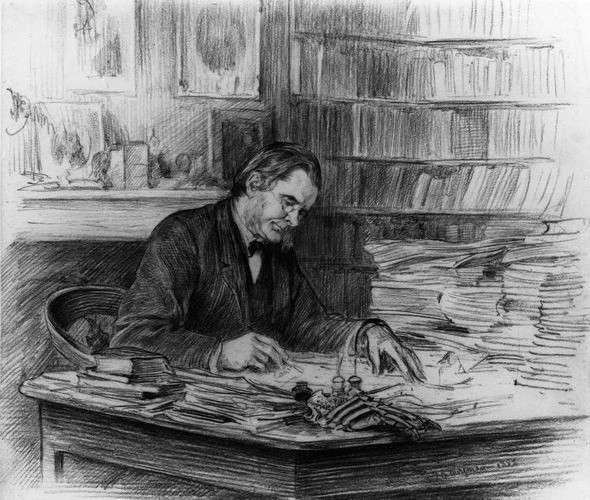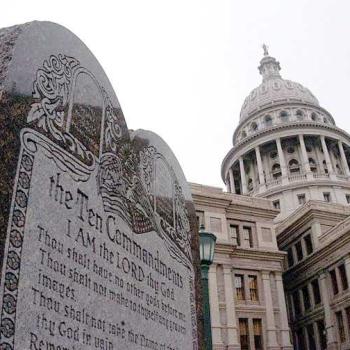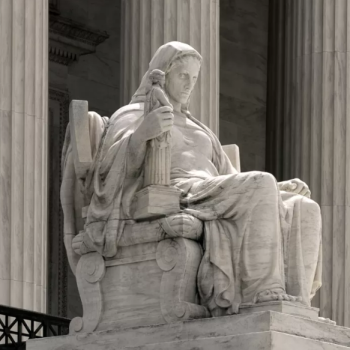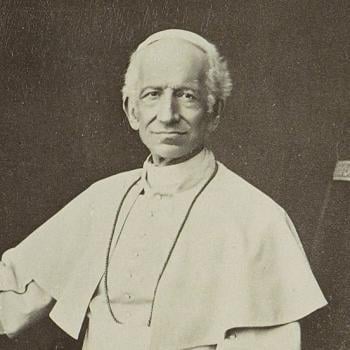Agnosticism is a word coined in 1869 by the English biologist T. H. Huxley. And it may not mean what you think it means. In popular English usage, agnosticism is a kind of theistic fence sitting; the agnostic is one who doesn’t take a position on whether God exists or not. But the meaning of agnosticism that Huxley intended is, to me, much more interesting.
The word was coined from the Greek agnōstos, which means “unknown” or “unknowable.” The meaning of agnosticism explained in the Patheos Religion Library is useful, and we should start with that — “the doctrine or ideology that claims knowledge is only accessible through the phenomena of experience.” In other words, we can only have knowledge of what can be observed or experienced. Agnosticism proposes that it’s possible there are all sorts of things going on that we do not and perhaps cannot know, because we lack the capacity to experience them.
But what about reason? What about logic? some might ask. Logic doesn’t operate in a vacuum. A correctly applied syllogism will still give you a junk answer if your propositions are flawed. It’s only in the realm of quantum mechanics — which I admire but don’t claim to understand — that we humans arguably are using brain power to reach past the experienced and expand the scope of the knowable. But even then, as I understand it, quantum formulations are somehow checked against observable phenomena.
About T. H. Huxley
Thomas Henry Huxley (1825–1895) was one of the patriarchs of modern science. He originally studied medicine, then to repay debts he joined the British Navy and spent two years as an assistant surgeon on HMS Rattlesnake. As the warship sailed the western and South Pacific, Huxley collected and studied ocean organisms, especially marine invertebrates. He mailed his observations back to England whenever he was in port. When he returned home, he found that his published letters had earned him acceptance into the British scientific establishment. He taught natural history and paleontology. He held chairs at the Royal Institution and the Royal College of Surgeons.
One of Huxley’s most successful contributions was his crusade to completely separate theology and science. It might seem odd to us now that they had to be separated at all, but in the 19th century, they did. In his early career he saw that religious orthodoxies were holding back scientific inquiry. And then he became a close friend and ally of another giant of science, Charles Darwin. Huxley defended Darwin’s evolution theory so vigorously he was called “Darwin’s bulldog.” Time and again he demonstrated that the “scientific” objections to Darwin’s theory were, at their root, based in religion.
Huxley was a member of a short-lived debating club called The Metaphysical Society (1869-1880). Another member, Alfred Lord Tennyson, would later say that the Society dissolved because “after ten years of strenuous effort no one had succeeded in even defining metaphysics.” The Society’s members tended to self-identify with some sort of “ism” — theism, materialism, idealism. Huxley saw that people built their intellectual opinions on the foundations of whatever “ism” they assumed to be true. But by then Huxley had taught himself to be skeptical of any proposition for which one cannot produce evidence. He chose then to call himself agnostic to set himself apart from those who “professed to know so much about the very things of which I was ignorant.”
Huxley’s Meaning of Agnosticism
First, Huxley never intended agnosticism to apply only to a position on the existence (or not) of God. One can — and should — be agnostic about any proposition, whether religious, scientific, philosophical, political, economical, or anything else, that can’t be supported by empirical evidence. It’s fine to consider such propositions, but they should be held lightly, not grasped as absolute truths or used as the basis of a dogmatic belief system.
The online Stanford Encyclopedia of Philosophy — which is a useful cheat sheet for those of us who didn’t major in philosophy — argues that there are two fundamental ways to understand agnosticism. To neither believe nor disbelieve in God is to be agnostic in a psychological sense. But to Huxley, agnosticism is a “normative epistemological principle” that accepts some things are not known because they are outside the reach of our ability to observe them. In Huxley’s agnosticism, “neither the belief that God exists nor the belief that God does not exist has positive epistemic status of any sort,” says the Encyclopedia.
Agnosticism in the broader sense of the term is central to science and the scientific method. It’s essential to not presume anything is true if it hasn’t been observed and tested. But Huxley’s not-knowing is, obviously, very different from current popular scientism. A devotee of scientism will tell you that whatever can’t be proved to exist by the scientific method, which relies on empirical observation, therefore doesn’t exist. I like to point out that this proposition can’t be confirmed or falsified by the scientific method. On the other hand, agnosticism doesn’t support a “god of the gaps” view that whatever science cannot (yet) explain is proof that God must have done it.
Huxley’s Agnosticism and Christianity
Huxley lived in a place and time in which expressing doubt about Christian teachings was socially unacceptable. In an essay called “Agnosticism and Christianity,” Huxley tried to clarify that his agnosticism is not a creed but a principle. “This principle may be stated in various ways, but they all amount to this: that it is wrong for a man to say that he is certain of the objective truth of any proposition unless he can produce evidence which logically justifies that certainty. This is what Agnosticism asserts; and, in my opinion, it is all that is essential to Agnosticism.”
In this essay Huxley spoke of “scientific theology,” a term that might strike us as an oxymoron. By this he meant, roughly, a critical approach to religion that looks at how beliefs and doctrines originate and doesn’t demand belief in miracles or supernatural events. An agnostic need have no quarrel with scientific theology, he wrote. But agnosticism stands against “Ecclesiasticism” or “clericalism.” “The Cleric asserts that it is morally wrong not to believe certain propositions, whatever the results of a strict scientific investigation of the evidence of these propositions,” Huxley said.
Can there be a Christianity (or other religion) that doesn’t depend on belief in unobserved things? Do see “The Case for Agnostic Christianity” by Zachary Strong in Aero magazine. Apparently there are people trying to build such a Christianity, and I wish them well. Many years ago I left Christianity in search of a religious path that didn’t require such belief, and I found it in Zen Buddhism. But that’s perhaps the subject of a future post.














